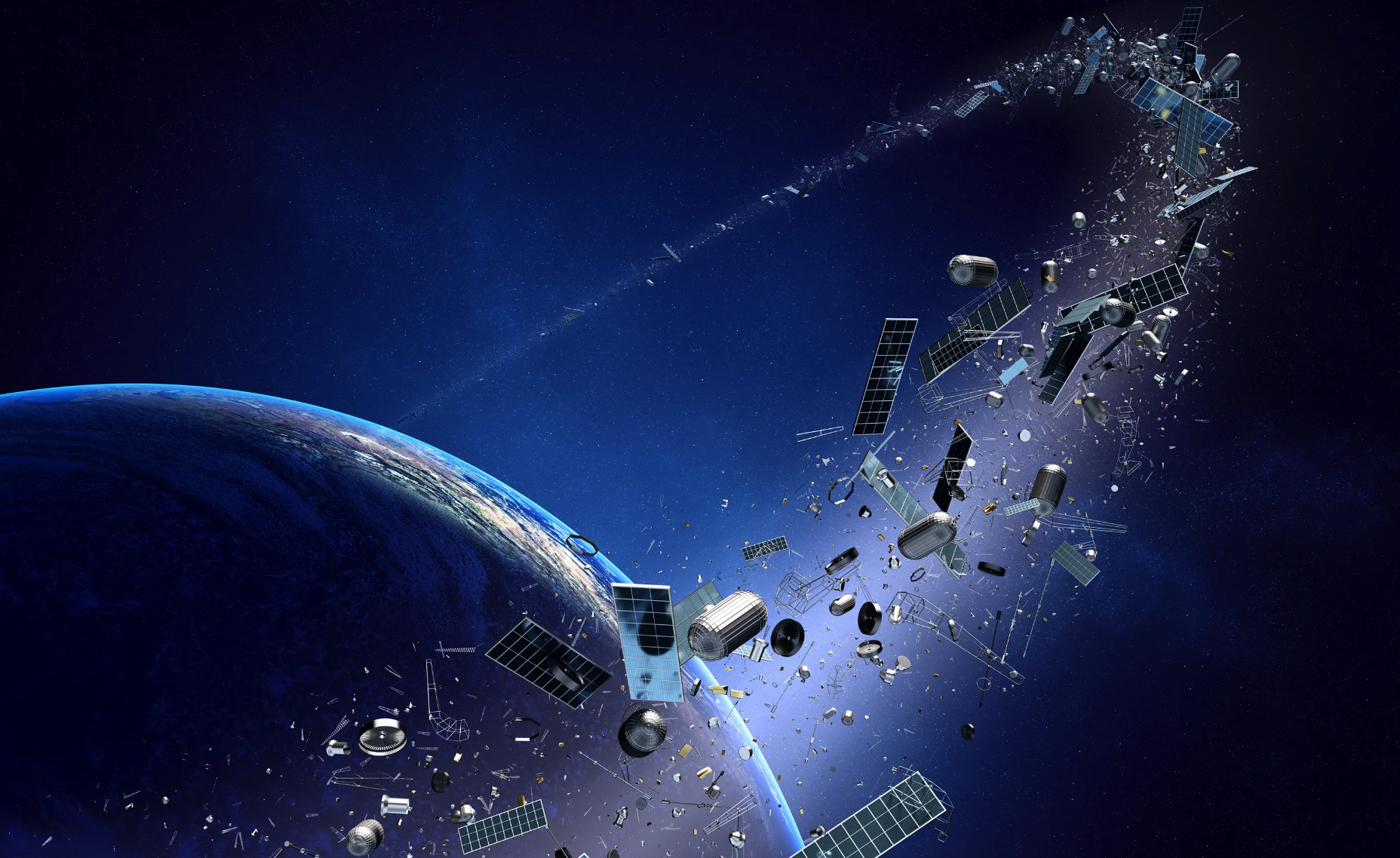ISRO’s ‘Zero Orbital Debris’ Milestone

- 09 Apr 2024
Why is it in the News?
The rise in satellite launches has led to a new crisis for spacefaring nations: space debris, which ISRO's recent mission successfully mitigated by leaving 'zero orbital debris'.
Context:
- Recently, ISRO announced that its PSLV-C58/XPoSat mission effectively minimized debris in Earth's orbit.
- This achievement was made possible by repurposing the final stage of the PSLV into a novel orbital station termed PSLV Orbital Experimental Module-3 (POEM-3), as outlined by ISRO.
What is POEM?
- POEM, developed by the Vikram Sarabhai Space Centre (VSSC) is a cost-effective space platform, that repurposes the spent fourth stage of a PSLV rocket into an orbital platform.
- It made its debut during the PSLV-C53 mission in 2022, serving as a stabilized platform for conducting in-orbit scientific experiments with various payloads.
- POEM-3, deployed during ISRO's PSLV C-58 mission in 2024, successfully positioned the XPoSat satellite into its targeted 650 km orbit.
- Subsequently, the fourth stage of the PSLV, functioning as POEM-3, was maneuvered to a circular orbit at 350 km altitude.
- Upon completing all payload objectives, POEM-3 re-entered Earth's atmosphere.
Significance of POEM-3's Achievement:
- The significance of POEM-3's achievement lies in its contribution to mitigating space debris, a pressing concern highlighted in ISRO's Space Situational Assessment Report 2022.
- With the world witnessing a surge in space object placement, reaching 2,533 in 179 launches in 2022, the proliferation of space debris poses substantial risks to space assets.
- Furthermore, it exacerbates the 'Kessler syndrome,' wherein cascading collisions from a single event generate additional debris, intensifying the threat to space operations.
International Law Pertaining to Space Debris:
- Regarding international regulation on space debris, presently, there exists no specific international law governing debris in Low Earth Orbit (LEO).
- However, the majority of spacefaring nations adhere to the Space Debris Mitigation Guidelines of 2002, which received endorsement from the UN in 2007.
How are Space Agencies Dealing with Debris?
- Various space agencies are actively addressing the issue of space debris.
- NASA initiated its Orbital Debris Program in 1979, while the European Space Agency (ESA) has committed to a 'Zero Debris charter,' aiming for the elimination of space debris by 2030.
- Japan has launched the Commercial Removal of Debris Demonstration (CRD2) project to confront space junk.
- Additionally, an Indian startup named Manastu Space is developing technologies such as in-space refueling, deorbiting of defunct satellites, and satellite life extension to contribute to debris mitigation efforts.
